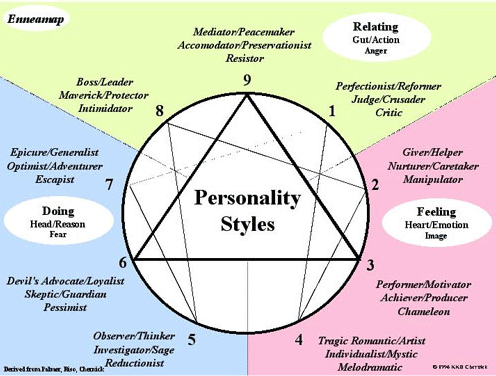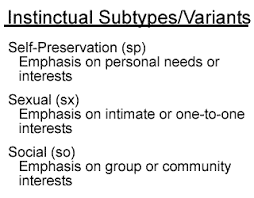 Last weekend, I spent the weekend with my wife and a bunch of close friends, immersing ourselves in the enneagram. It’s something I’ve done a bit of before and highly recommend it! The enneagram is an ancient way of understanding the human personality, our instincts, gifts, struggles and strengths. There are several different perspectives on it. There are similarities between the enneagram and various other approaches to understanding ourselves and each other better, like the Myers-Briggs, Strengths Finder etc, all of which I have found really helpful. On Myers-Briggs, I’m an ENFP. My core strengths are ‘believer’, ‘activator’, ‘communicator’, ‘achiever’ and ‘woo’ (the ability to win others over). I love knowing this stuff, especially in team dynamics because it allows each person to play to their strengths and to some extent, cover each others weaknesses.
Last weekend, I spent the weekend with my wife and a bunch of close friends, immersing ourselves in the enneagram. It’s something I’ve done a bit of before and highly recommend it! The enneagram is an ancient way of understanding the human personality, our instincts, gifts, struggles and strengths. There are several different perspectives on it. There are similarities between the enneagram and various other approaches to understanding ourselves and each other better, like the Myers-Briggs, Strengths Finder etc, all of which I have found really helpful. On Myers-Briggs, I’m an ENFP. My core strengths are ‘believer’, ‘activator’, ‘communicator’, ‘achiever’ and ‘woo’ (the ability to win others over). I love knowing this stuff, especially in team dynamics because it allows each person to play to their strengths and to some extent, cover each others weaknesses.
 What I love about the enneagram is that it helps me, more than anything else I know, to face up to my struggles, my shadow, my ego and my unhealthy behaviour patterns without leaving me feeling ashamed or condemned. It helps me get to grips with my blind spots when it comes to my raw instincts and enables me to draw on others for support and help in making healthy changes. For those of you, who have never read anything about it, there are basically 9 personality types, each with 3 basic instinct types attached to them. Understanding your type and your instinct (especially your blind spot) can really help you on a journey towards freedom, wholeness and peace. It made me reflect so much on how I practice as a doctor and how often I might actually try and medicate someone or ‘therapy’ them, to try and soothe their pain when they might just be at a monumentally important moment of transition, discovery or realisation.
What I love about the enneagram is that it helps me, more than anything else I know, to face up to my struggles, my shadow, my ego and my unhealthy behaviour patterns without leaving me feeling ashamed or condemned. It helps me get to grips with my blind spots when it comes to my raw instincts and enables me to draw on others for support and help in making healthy changes. For those of you, who have never read anything about it, there are basically 9 personality types, each with 3 basic instinct types attached to them. Understanding your type and your instinct (especially your blind spot) can really help you on a journey towards freedom, wholeness and peace. It made me reflect so much on how I practice as a doctor and how often I might actually try and medicate someone or ‘therapy’ them, to try and soothe their pain when they might just be at a monumentally important moment of transition, discovery or realisation.
I am a type 7, with a wing in 8. The instinct types are either self-preservation (which is actually my blind spot – I’m just not that great at being disciplined in taking care of my basic needs e.g. diet and exercise, or my motivation for doing these things is not self-care!), social adaptation or sexual attraction (that’s my prime driver – rather unfortunately termed, as it doesn’t mean I’m some kind of sex fiend!). Being a type 7 is actually awesome (of course). It means being an optimist, an activator, an enthusiast, a visionary and an adventurer. I see potential in people and possibilities and carry a strong belief that things can and will change for good. For me, life is fun and full of joy and I love to assimilate loads of interesting knowledge, being a generalist (suiting my work as a GP, rather than a specialist)……What’s not to love, right?! But here’s the thing…..
actually my blind spot – I’m just not that great at being disciplined in taking care of my basic needs e.g. diet and exercise, or my motivation for doing these things is not self-care!), social adaptation or sexual attraction (that’s my prime driver – rather unfortunately termed, as it doesn’t mean I’m some kind of sex fiend!). Being a type 7 is actually awesome (of course). It means being an optimist, an activator, an enthusiast, a visionary and an adventurer. I see potential in people and possibilities and carry a strong belief that things can and will change for good. For me, life is fun and full of joy and I love to assimilate loads of interesting knowledge, being a generalist (suiting my work as a GP, rather than a specialist)……What’s not to love, right?! But here’s the thing…..
As a type 7, I have a basic need to avoid pain. So, being a doctor is actually one of the best things I could do, as I have to confront pain every day. But when things are painful, I have a tendency to bury things, rather than deal with them. I hate having difficult  conversations with people, as I hate causing pain in others. I love to find the next new thing, but this means I get easily distracted, my head is full of new ideas and lots of wonderful imaginings so I find it hard to focus, to stay in the present moment and be at peace. My visionary side can easily lead to idealism and when things don’t turn out the way I had imagined, I can verge towards anger or resentment. Even though I know this about myself, when I am not doing so well, when I am not as healthy as I could be, I see these patterns emerging. And my root struggle (and this is entirely true!) is gluttony! When life is painful, instead of embracing the pain, exploring it and confronting it, I take comfort in eating – (type 7’s often have yo-yo-ing weight or other addictions). I’m on a quest to lose a stone at the moment, but because self-preservation is my blind spot, this isn’t as straightforward as it sounds!
conversations with people, as I hate causing pain in others. I love to find the next new thing, but this means I get easily distracted, my head is full of new ideas and lots of wonderful imaginings so I find it hard to focus, to stay in the present moment and be at peace. My visionary side can easily lead to idealism and when things don’t turn out the way I had imagined, I can verge towards anger or resentment. Even though I know this about myself, when I am not doing so well, when I am not as healthy as I could be, I see these patterns emerging. And my root struggle (and this is entirely true!) is gluttony! When life is painful, instead of embracing the pain, exploring it and confronting it, I take comfort in eating – (type 7’s often have yo-yo-ing weight or other addictions). I’m on a quest to lose a stone at the moment, but because self-preservation is my blind spot, this isn’t as straightforward as it sounds!
Thankfully, there is great hope – as there is for all of us, no matter what type we are. Part of this hope is found in having people of other types around me. My wife, for example, is a type 4 – someone with a creative and sensitive side. She feels pain, not just the pain she experiences, but of those around her, which makes the expression of her emotions very strong. This is an amazing gift for me – it makes me connect with reality. And I am a good gift to her, as I carry a lot of hope. Another beautiful truth in the enneagram, is that my ego, my desire to be self-centred, build the world around me, to remain strong, to be the  most important person in my life, deliberately fools me into suppressing the vulnerable or shadow part of me, which if I embrace, can actually allow me to become a great deal more healed. If I can face up to the little person inside me, that I hide away and try to squash, who feels worried at times that I don’t have enough and that I’m feeling a bit overwhelmed by the build of issues on the inside of me; if I can recognise when I have entered the realm of fake joy and anticipatory energy and instead of veering towards trying to control everything and make everything feel happy but rather admit where I’m really at…..then and only then can I find a place of true contentment, where simplicity is restored, where I can focus, be present and know things are ‘perfect just as they are’…..then I can let go of idealism and enter the realm of sober joy, where truth resonates with hope and allows me to be the very best version of me.
most important person in my life, deliberately fools me into suppressing the vulnerable or shadow part of me, which if I embrace, can actually allow me to become a great deal more healed. If I can face up to the little person inside me, that I hide away and try to squash, who feels worried at times that I don’t have enough and that I’m feeling a bit overwhelmed by the build of issues on the inside of me; if I can recognise when I have entered the realm of fake joy and anticipatory energy and instead of veering towards trying to control everything and make everything feel happy but rather admit where I’m really at…..then and only then can I find a place of true contentment, where simplicity is restored, where I can focus, be present and know things are ‘perfect just as they are’…..then I can let go of idealism and enter the realm of sober joy, where truth resonates with hope and allows me to be the very best version of me.
Many of us get stuck, because we’re so intent on preserving the ego projection of ourselves, that we never embrace the weakness inside us that will actually help us become the gift to the world we are really made to be……healing and wholeness is so much more than we allow it to be. What are your root struggles? What do you need to avoid? What are your blind spots? Find out, embrace them and be well.